Migrants in Tijuana weigh options after court blocks Trump’s asylum ban for illegal border crossers
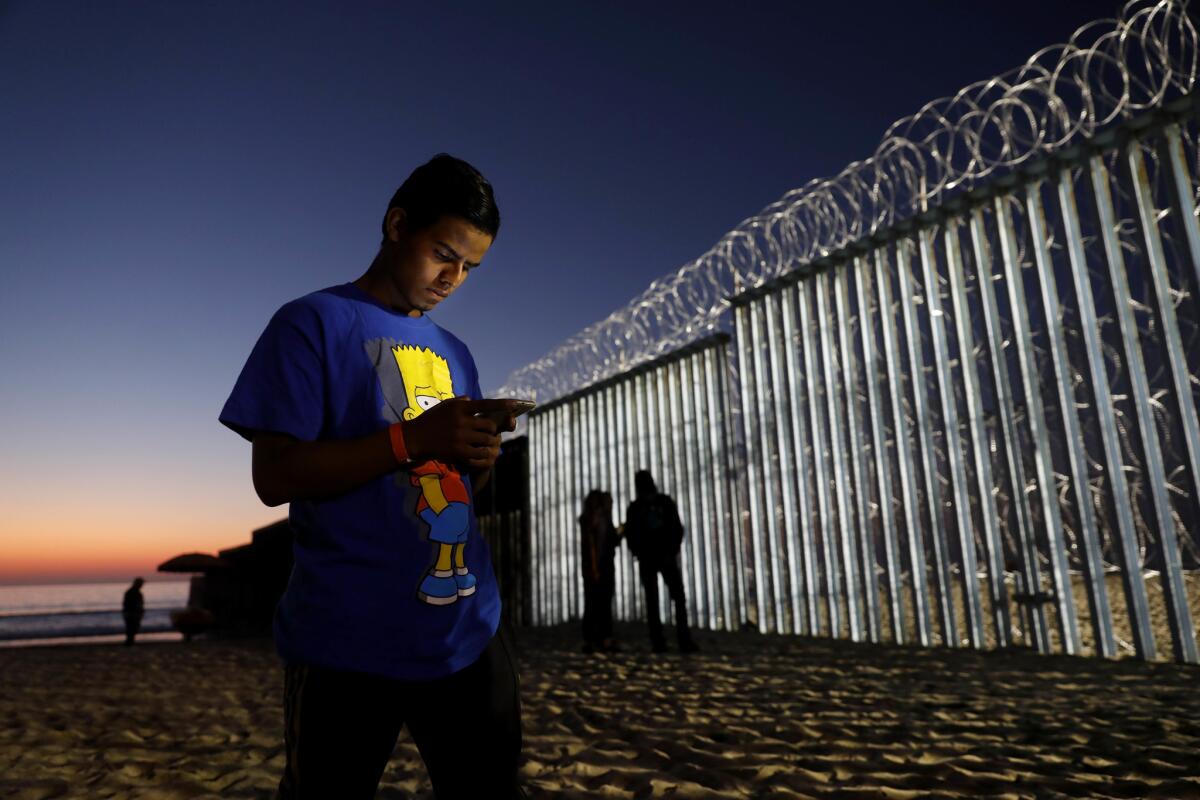
- Share via
Migrants camped in Tijuana after traveling in a caravan to reach the U.S were weighing their options Tuesday after a U.S. court blocked President Donald Trump’s asylum ban for illegal border crossers.
Many said they have no intention of breaking the law, but were feeling pressure after anti-migrant protests in this Mexican border city amid claims by Trump and the Tijuana mayor that the caravan harbors gang members and criminals, something they strongly deny.
Herson Cordonez, a 29-year-old Honduran, said the actions of a few migrants were tainting the image of the 4,000 to 6,000 in the caravan, not all of whom have yet reached Tijuana. “We are not criminals, we are migrant workers,” Cordonez said, adding that he was considering trying to get into Canada if the U.S. doesn’t want him.
Tijuana officials said late Monday they had arrested 34 caravan members for drug possession, public intoxication, disturbing the peace and resisting police, and they would be deported to their home countries.
Fortified
Confrontation
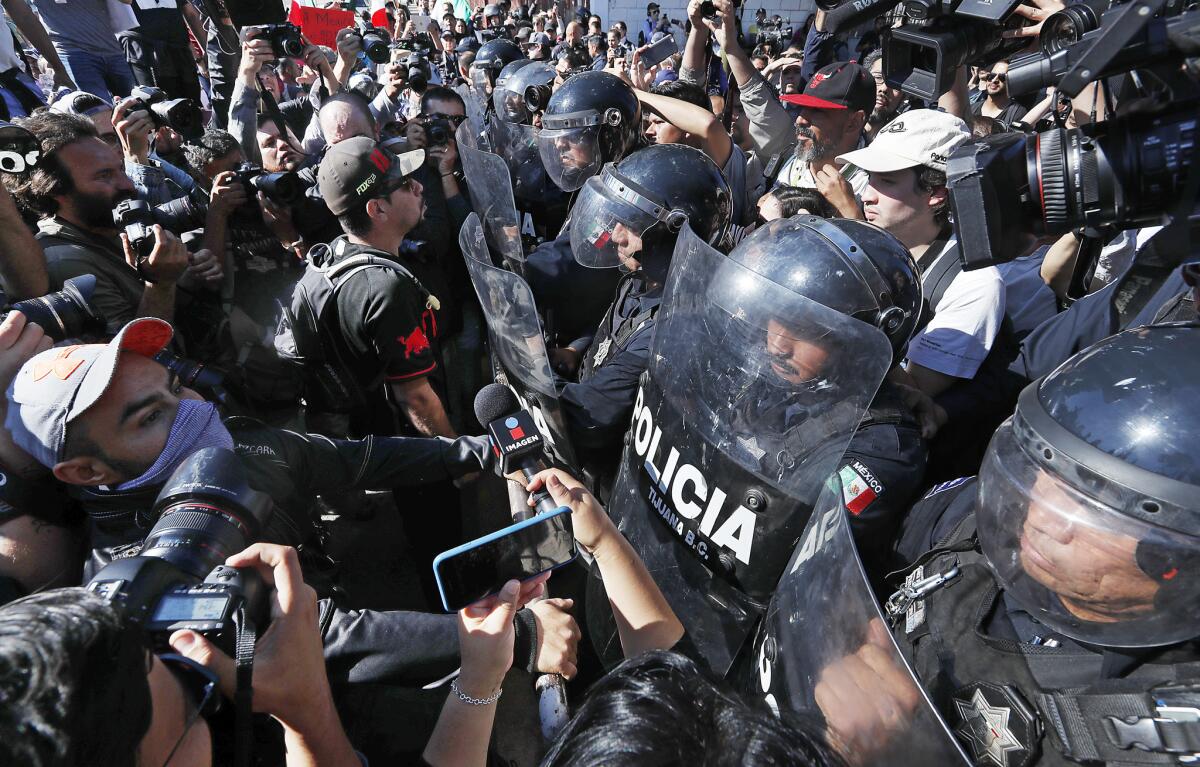
This city of migrants has turned on the caravan of thousands of Central American migrants that has roiled the border town.
“This is an invasion!” shouted Luis Alexis Mendoza, 30, a bespectacled carpenter who was among scores of protesting Tijuana residents staging an anti-caravan demonstration Sunday that culminated in a standoff with riot police on the street where more than 2,000 Central Americans were being housed in a sports facility. “We demand respect! We demand that our laws be followed.”
He and others denounced caravan members — mostly Honduran nationals — as “criminals,” “bums,” and “freeloaders,” among other negative characterizations used to describe the Central Americans.
New arrivals
Protesters sang the Mexican national anthem and waved Mexican flags in a loud display of nationalism and anti-caravan sentiment.A march by protesters through downtown took on the character of a mob as angry demonstrators tried to storm the sports facility housing caravan participants, who began arriving last week in Tijuana after a month on the road.
Word that angry Mexican protesters were approaching the sports complex sent many migrants running back inside. Fear and uncertainty reverberated in the sports facility.
“We feel trapped,” said Jose Antonio Paz, 32, who traveled from the city of El Progreso, Honduras, with his wife and four daughters. “People came after us with rocks. How can we defend ourselves?”
Protests and arrest
Police wearing helmets and carrying plastic shields rebuffed the demonstrators’ efforts to rush the sports facility.
No injuries were reported in scuffles between police and protesters, who lingered for hours outside the concrete barricades sealing entrances to the makeshift shelter.
But the episode highlighted the stunning hostility that the caravan has encountered in a city of 1.6 million that has long been a way station for U.S.-bound migrants — mostly from Mexico but multitudes from Central America as well.
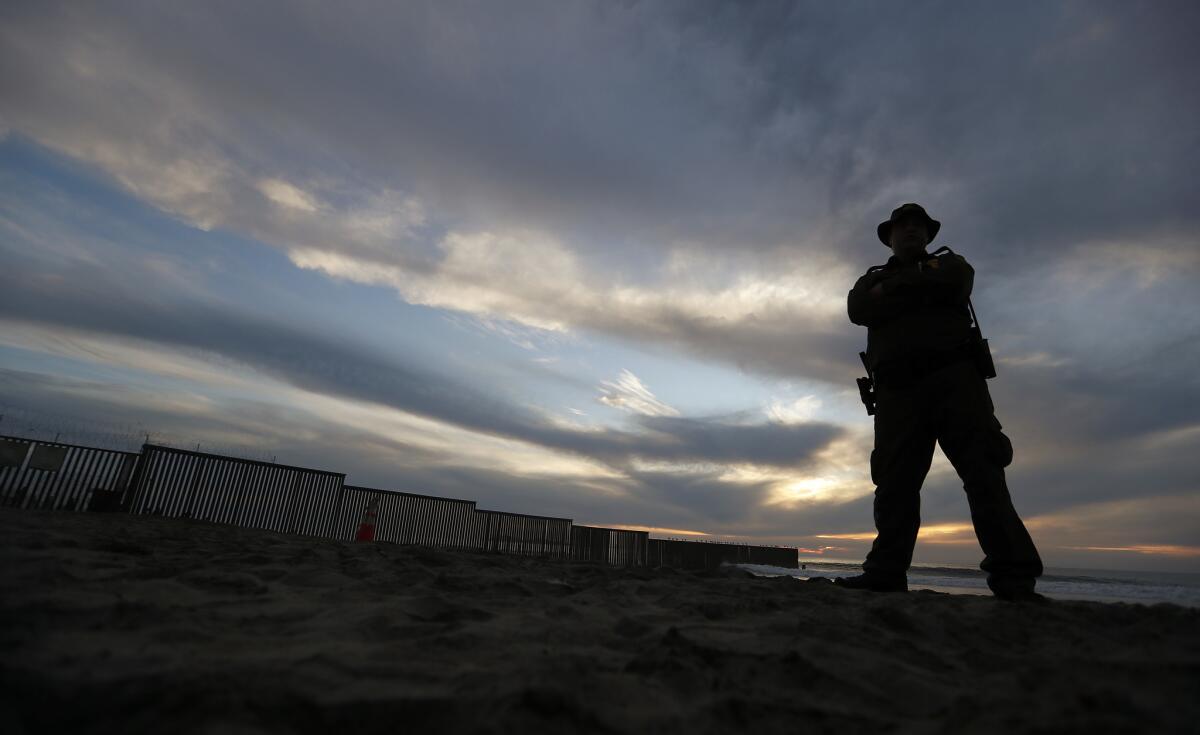
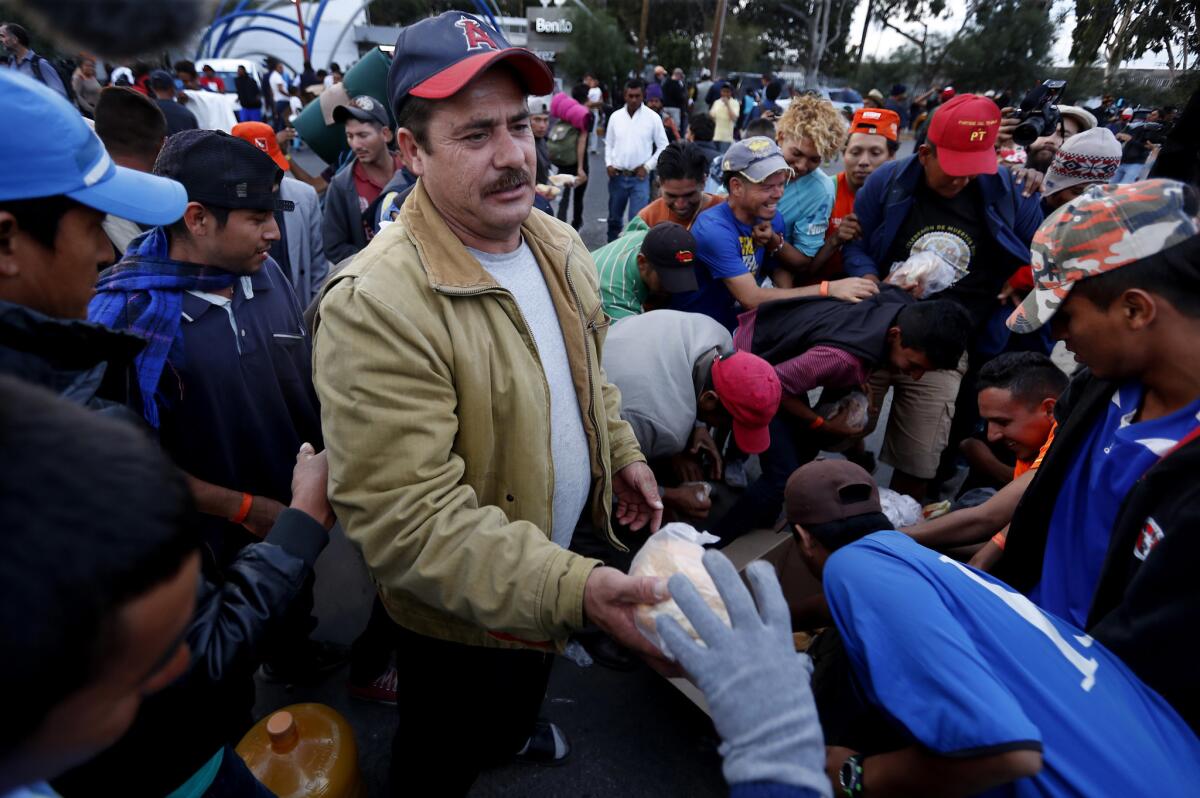
After traveling nearly 3,000 miles, enduring sweltering heat, tropical downpours, chilly evenings and endless stretches of mountains and desert during more than a month on the road, Ana Lidia Cruz acknowledged being somewhat deflated upon her arrival to this sprawling border city.
“Everywhere in Mexico, people treated us so nicely — they gave us food, water, places to stay,” said Cruz, 38, who was seated beneath a metal sculpture of dolphins in the seaside Playas de Tijuana district. “But here, they don’t seem to want us. We’re all tired, and a bit disillusioned.”
She and her two children, Honduran citizens, are among the members of the migrant caravan that drew the ire of President Trump and became an incendiary issue in the run-up to the U.S. midterm election.
Food and shelter
In recent days, hundreds of caravan members — including Cruz and her two children, 12 and 14 — have been arriving in Tijuana, across the border from San Diego. Thousands more are expected to arrive here later Thursday and through the weekend.
They have received something less than a warm welcome in a city that has long been a byway for northbound migrants — and a place where most residents have origins elsewhere in Mexico.
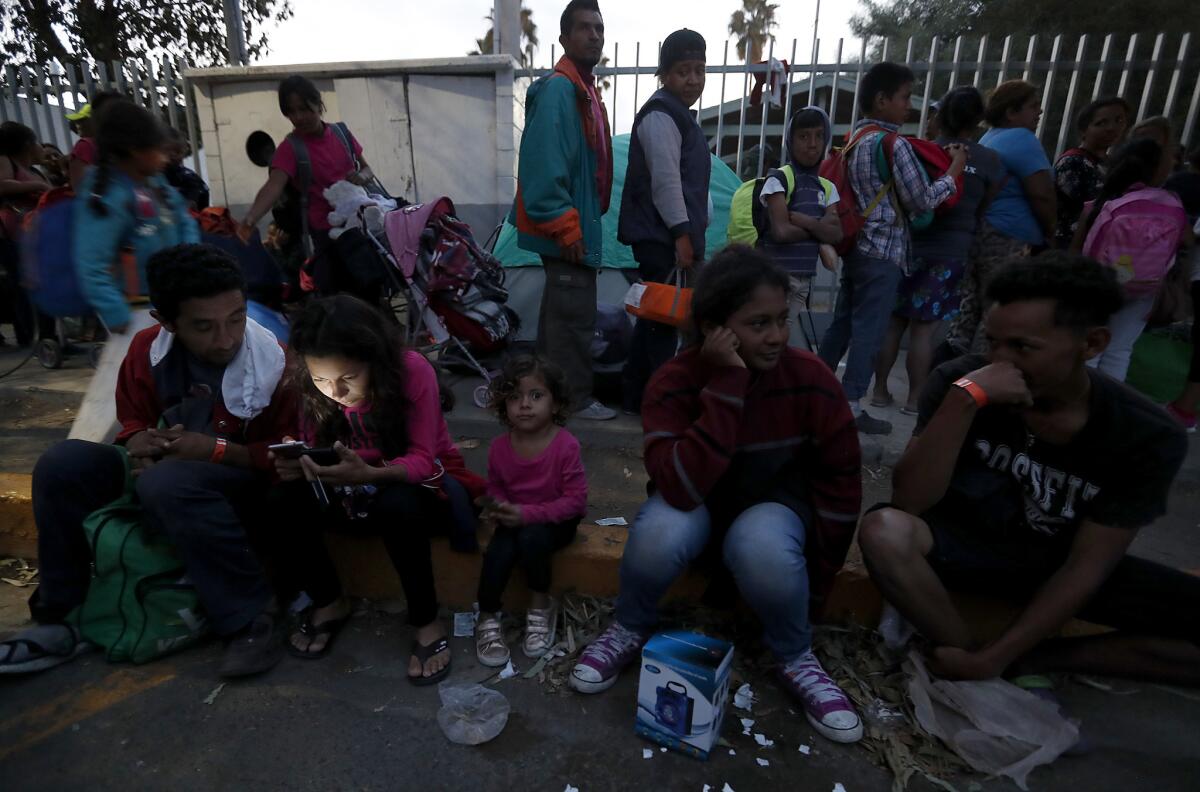
“I understand that many people here in Tijuana are nervous about us, but we didn’t come here to cause any problems,” said Edy Rivera, 37, a farmer from Honduras who said he hoped to find work in the United States and send money home to his wife and three children. “We are just passing through. We plan to get in line at the border and present ourselves legally. Hopefully, the American president will find it in his heart to let us in.”
Visible presence
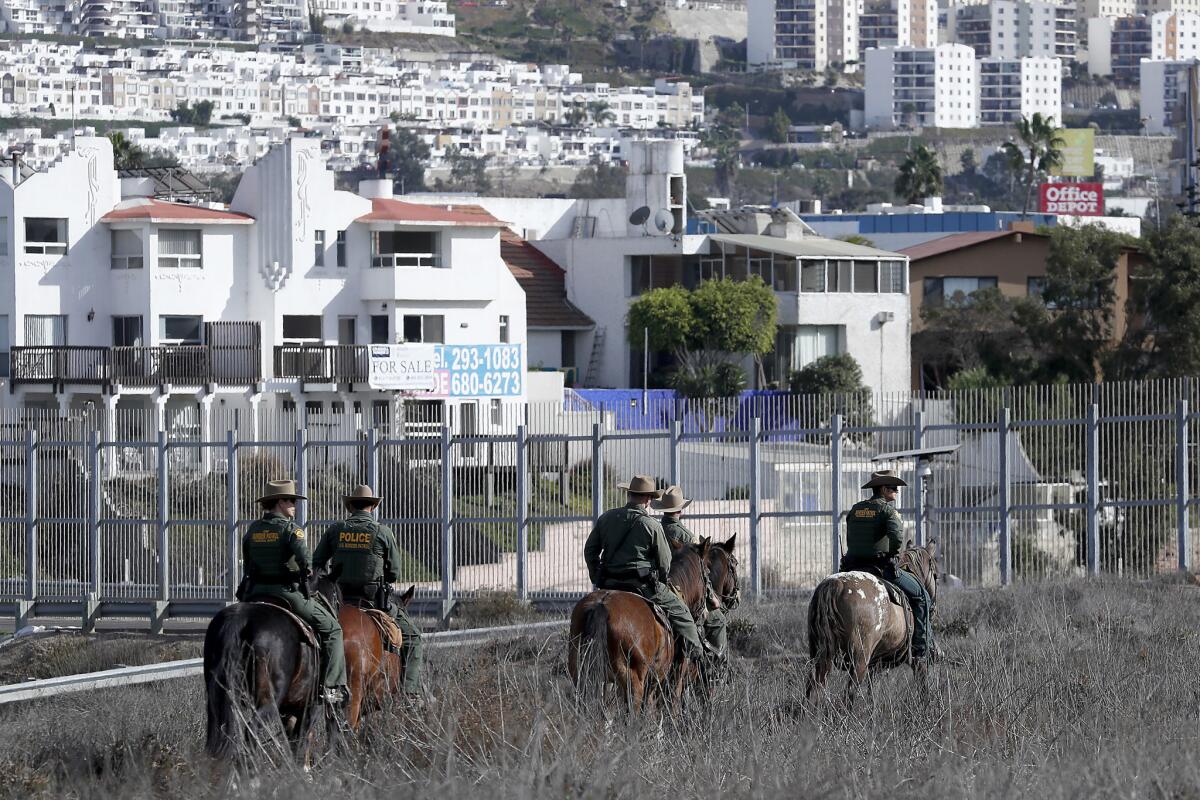
Later in the day, as buses filled with caravan participants continued to arrive, migrants camped on the sidewalk outside the sports center. A mariachi band serenaded the growing crowd, bringing cries of “Viva Mexico!” from the Central Americans, many of whom sang along.
Many of the mariachi ballads were standards about the perils and pitfalls of migrants crossing the border.
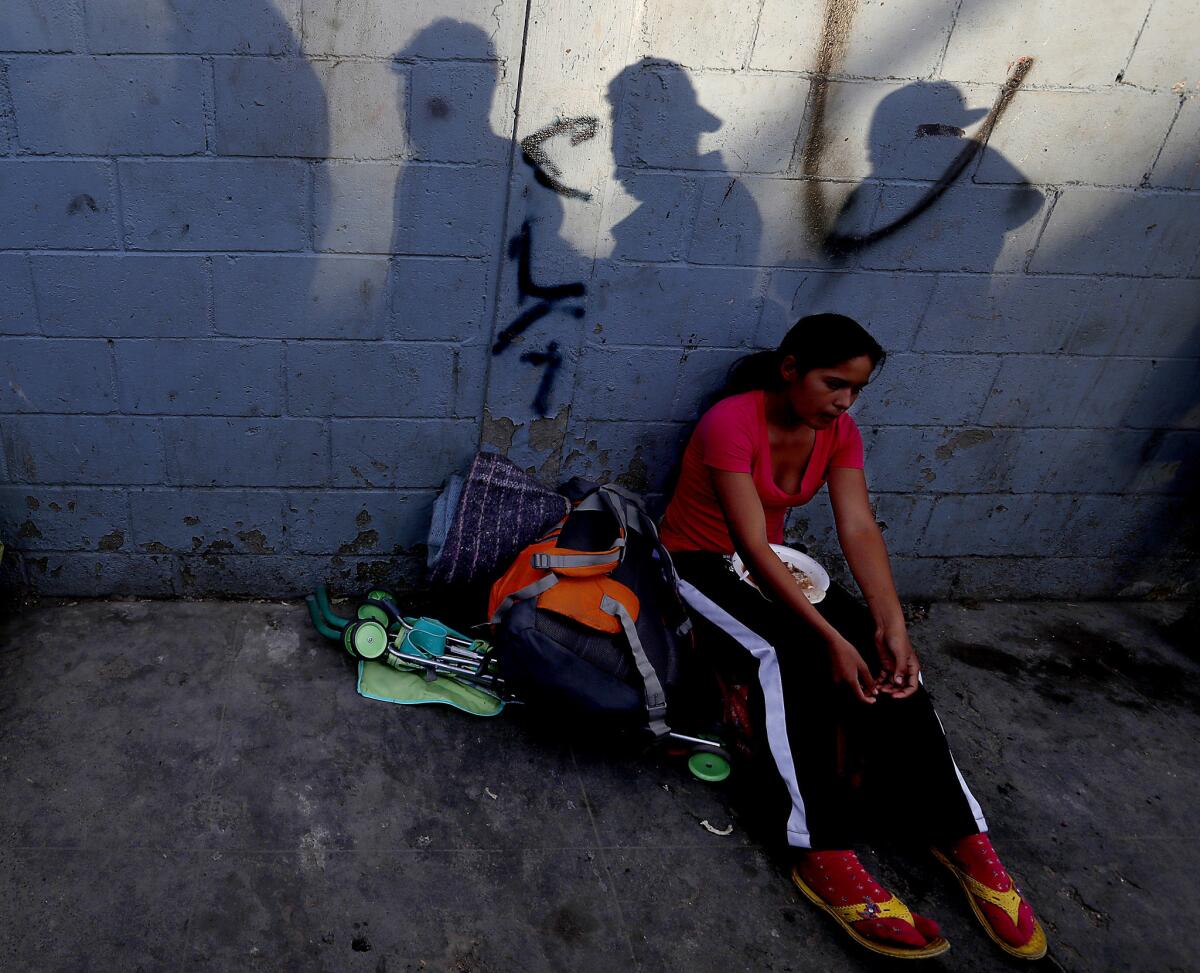
For more visual journalism, vist Framework »
Twitter: @luissinco
Twitter: @gary_coronado
Sign up for Essential California
The most important California stories and recommendations in your inbox every morning.
You may occasionally receive promotional content from the Los Angeles Times.






